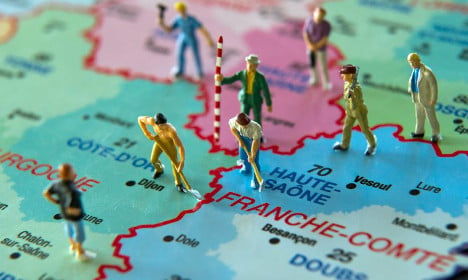France is a desirable place to live but some parts of the country are clearly more desirable than others.
When it comes to where the French want to live most of all, the south west region of Languedoc-Roussillon-Midi-Pyrénées tops the polls.
And apparently plenty of French are acting on their desires, with the region taking in 50,000 new residents, according to the newspaper Midi-Pyrennees.
The south western region is home to the Pyrénnees mountains and also has large stretch of Mediterranean coastline, hence its popularity.
The region, one of the new ones created in last year’s controversial territorial rejigging, won a slightly bigger share of the vote than Provence-Alpes-Côte-d’Azur.
And just behind the region, which is home to the French Riviera and the spectacular Alps, came Brittany.
The region to the west of France also had the highest satisfaction levels among the residents, with 95 percent of those asked perfectly happy with life in Brittany.
They compared to only 73 percent in the Ile de France, which is home to the French capital.
However at the other end of the scale came Nord-Pas-de-Calais-Picardie, which is officially, or at least according to the poll, the least desirable region in France to live.
It’s perhaps not surprising then that 55 percent of the residents in Nord-Pas-de-Calais-Picardie believe the quality of life in their region has deteriorated.
In 11th place came Bourgogne-Franche-Comté and in 12th Centre-Val-de-Loire.
“The French show a clear preference for the south, where the climate is warmer and for the Atlantic coast because they appreciate the sea and nature,” the poll concluded.



 Please whitelist us to continue reading.
Please whitelist us to continue reading.
Member comments